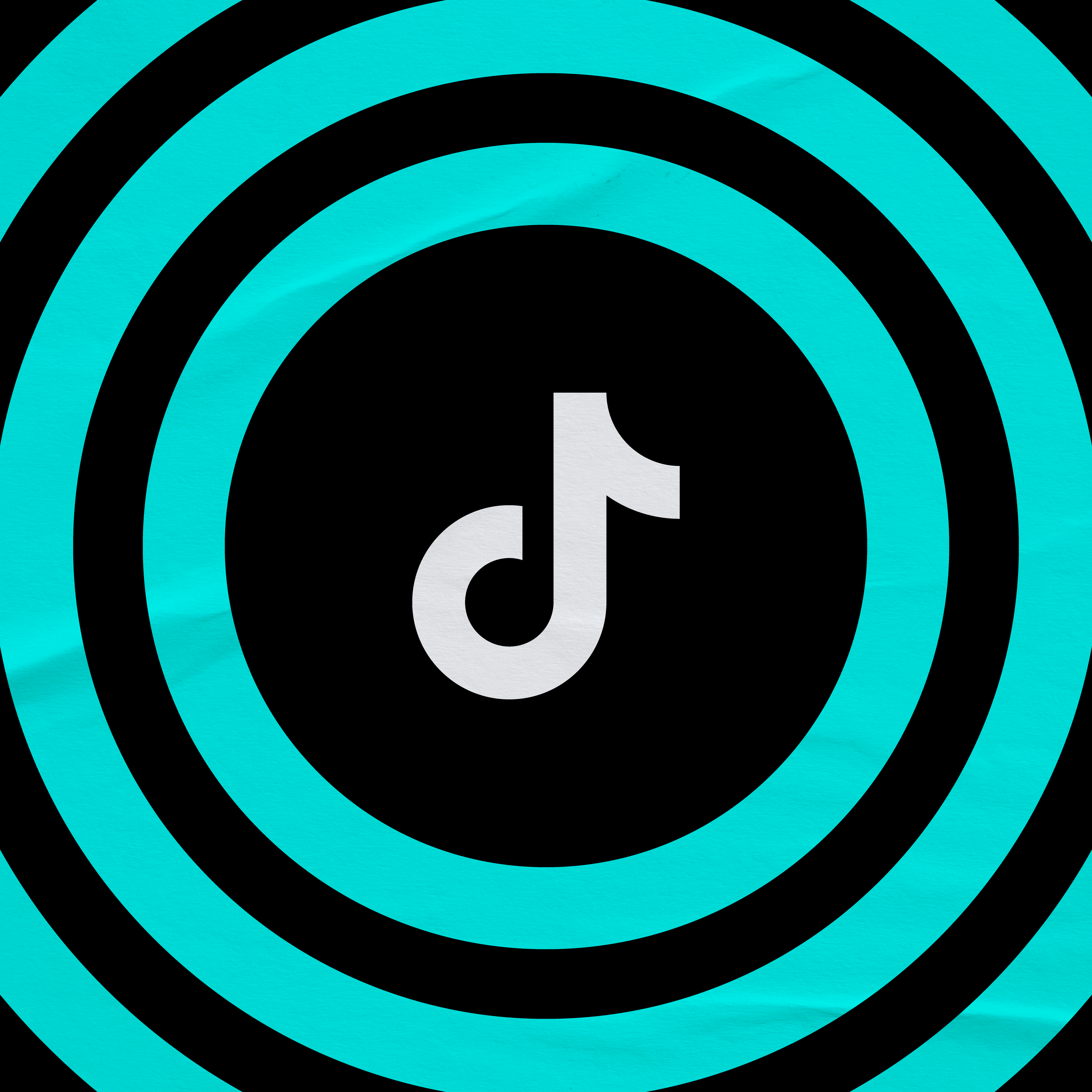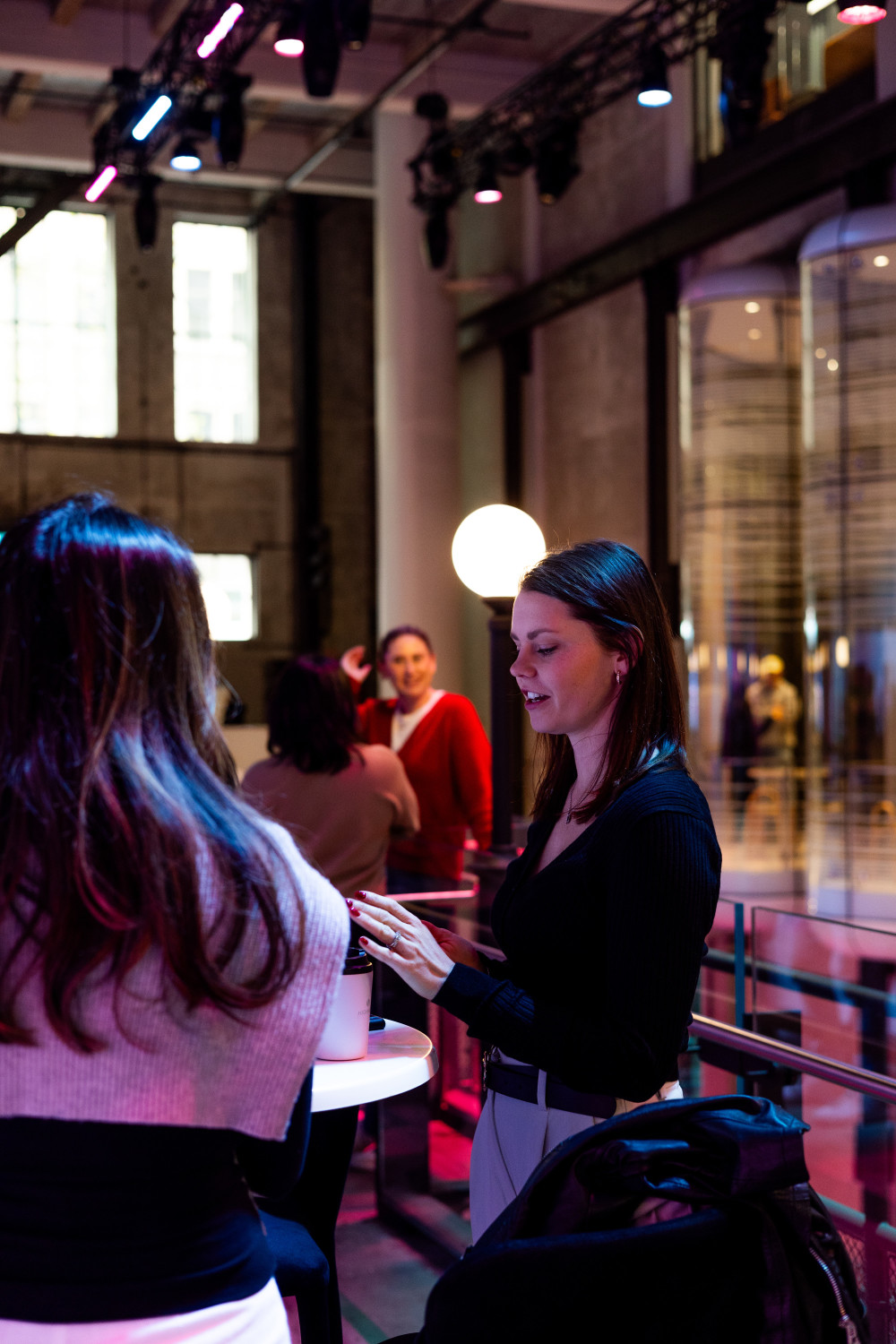Cohort voices
My 2024 TikTok Accelerator Program Kick-Off Experience

2024 TikTok Accelerator cohort member Rebecca Kingsbury, Associate Director at Intitiative, shares her reflections from the program's kick-off session in Sydney.
The TikTok Accelerator program is in its third year, and the theme for 2024 is all about bravery. In our application, we all had to share a moment from our professional lives where we had been brave, how it felt in the moment, and how it later impacted us and maybe even our careers.
For the initial session of the Accelerator Program, the 35 of us who made it through gathered at Machine Hall Precinct in Sydney. We had already become friends in the van from the airport to the hotel. Ten women of various backgrounds but all with one thing in common – we were really excited about the day and had absolutely no idea what to expect.
To no one’s surprise, the venue was fully decked out and on brand, and even the lights were in TikTok’s iconic pink and aqua colour scheme. We didn’t get to sit down for long at our tables; they had us up to break the ice quickly through bingo cards with odd facts about us all that we had previously submitted. There was some cheating, I’ll admit, but we all had the same strategy, so I think that was okay. Finding out odd tidbits about your future (hopefully) friends was a great way to be brave quite early on and share something about yourself that you probably wouldn’t just share at a regular industry event.

Then we got to settle in for the speaker of the day – Nadine Champion. Nadine’s talk was all about having courage, 10 seconds of it, to be precise. Some people just seem to have lived extraordinary lives, and Nadine is one of those people. But what she told us, through amazing storytelling, was that it didn’t come by chance; it came through courage.
I’m not going to try to do her story justice, but I will share some of the nuggets of gold that she shared with us, some thoughts for you to hopefully carry with you when you go into the next moment in your life that has the potential to be life-altering.
She knew she wanted to become a world champion in her martial art, and that she’d need help to get there. But she didn’t just ask anyone to be her mentor in her pursuit; she asked one of the world leaders in her field to be her coach. Your mentor should personify your goal to help take you to where you want to go. She challenged us to find OUR champion and ask them to be our mentor, to get us to be the next champion.
She told us how becoming a world champion isn’t just about the physical training but also the need to have a mental edge over your opponent. You need to work on your mind, strengthen it, and make it more resilient. It’s not just about having the will to do something; it’s the courage to then go through with it.
Research shows that 73% of our thoughts every day are negative. That’s a lot of negative talk, and a lot of that is negativity towards yourself. Don’t be your own opponent, and don’t silently disqualify yourself from opportunities that are in front of you – you can and deserve to take the chances that arise.
She explained that while having a support network is necessary in both our personal and professional lives, we also need to have a challenger network – people who tell you about your weaknesses and help you overcome them. Find the people who are willing to tell you these things and be brave enough to take this often-difficult feedback on board and do something about it – get out of your comfort zone.
Bravery isn’t about being strong, having skills, or having experience. Bravery comes from within you, and all it takes is 10 seconds of courage. Why? Because 10 seconds is long enough to get started. Change your thinking, use your courage, and act.
As you can see, I came away with a lot of notes and theoretical knowledge, but because it came from moments of her life, I only had these acts of bravery on a piece of paper in front of me.
So naturally, TikTok then made sure we got the opportunity to put theory into practice and had organised a class with improv teachers in front of 16 other people we’d only just met (the cohort was split into two groups). There were a lot of nervous looks around the room at this point.
Through bite-sized games, we got to experience and then reflect on why some things were easier or harder than others. One of the games was around association words and saying the first word you think of after someone else has either said a word or given you a theme. From this game, we came to look at our own thoughts in a different light – we are all so different, and our associations to a word are most likely not going to be the same as someone else’s. But that doesn’t mean that either of us is right or wrong; it just means that our way of thinking is different, and we don’t need to be quiet in fear of making a fool of ourselves. Working in a creative and problem-solving industry, this bravery to speak our associations is something to encourage in our teams so we can listen and learn from each other to break through when we are stuck, and to find new insights to client and business problems.
In another game, we learned about the power of a positive mindset (remember those 73% of thoughts that are negative?) – we did “yes AND” storytelling vs. “yes BUT” storytelling to see how the “and/but” impacted the stories we told each other. Again, to no one’s surprise, the “and” side had a lot happier endings to their stories, and it reminded us to try to have a positive mindset when working through tasks but also for team leadership.
Lastly, we took it in turns to say, for what I think was one minute but felt like a lot more, things that we love (a bit of an “I love lamp” scenario). We all had so much that we loved, and we all felt so grateful after the exercise. One thing that I think all of us said was that we love this industry and the opportunities it can provide us with, if only we are brave enough to take those opportunities.
